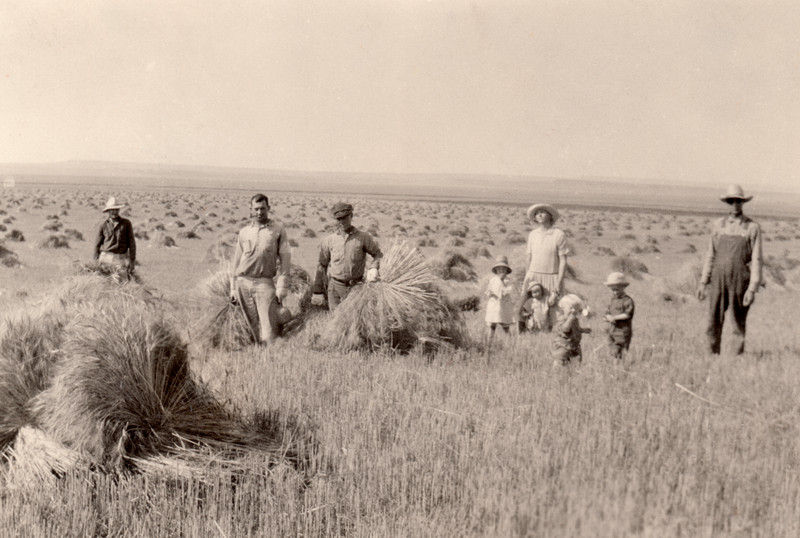What is the Farm Bill?
The Farm Bill is a piece of legislation that is developed every five years that shapes what we eat, what farmers grow, who can access land and capital, and the health of our natural resources. It contains policy, programs, and funding that pave the way for the many dimensions of our nation’s farm and food system.
The current Farm Bill (known as The Agriculture Improvement Act of 2018) was enacted in December 2018 and expires in September of this year, 2023, and will need to be reviewed and updated. This process includes proposition, debating, passing by Congress, and finally signing into law by the President.
Farm Bill history
In the early 1930s, President Franklin Delano Roosevelt enacted the Agricultural Adjustment Act to address the economic and environmental crises of the time- the Great Depression and the Dust Bowl. Its three original goals were to keep food prices fair for farmers and consumers, ensure an adequate food supply, and protect and sustain the country’s vital natural resources. Though current iterations of the farm bill look different, they are still based on these three primary goals.
Why is the Farm Bill important?

Everyone eats! Decisions made within the Farm Bill can affect the quality and security of our food supply, the accessibility of food for all, the livelihoods of farmers, and so much more. Many of the programs in the farm bill are designed to help farmers deal with price swings or natural disasters. These are known as the Farm Safety Net and are crucial for small, family farmers so that they can continue to provide food for their communities. The Farm Bill also includes food and nutrition assistance programs like SNAP (Supplemental Nutrition Assistance Program) which help improve access and affordability of food for Americans. The Farm Bill also addresses other aspects of our daily lives, such as economic development, environmental conservation, energy, and more.
What does the Farm Bill cover?
The Farm Bill does not have a fixed format, but the 2018 Farm Bill is comprised of twelve titles, or chapters: (From the National Sustainable Agriculture Coalition)
Title 1: Commodities
The Commodities title covers price and income support for the farmers who raise widely-produced and traded non-perishable crops, like corn, soybeans, wheat, and rice – as well as dairy and sugar. The title also includes agricultural disaster assistance.
Title 2: Conservation
Title 3: Trade
Title 4: Nutrition
Title 5: Credit
Title 6: Rural Development
Title 7: Research, Extension, and Related Matters
Title 8: Forestry
Title 9: Energy
Title 10: Horticulture
Title 11: Crop Insurance
Title 12: Miscellaneous
Here’s a breakdown of the 2018 Farm Bill projected spending.
Learn More
Learn more about the Farm Bill by visiting the resources below. The current Farm Bill expires in September of 2023!
What processes are involved in enacting a new Farm Bill, as well as more info about the legislation: https://sustainableagriculture.net/our-work/campaigns/fbcampaign/what-is-the-farm-bill/
An in-depth webinar recording, reviewing the Farm Bill from The Wallace Center and the National Sustainable Agriculture Coalition. Farm Bill 101 with the National Sustainable Agriculture Coalition
How the 2018 Farm Bill supports conservation of natural resources and encourages entry into farming through increased access to land and capital for young, beginning, veteran, and underrepresented farmers. https://www.nrcs.usda.gov/farmbill
A quick glance at assistance programs for farmers, ranchers, and forest managers available through the 2018 Farm Bill. https://www.farmers.gov/sites/default/files/documents/FarmBill-2018-Brochure-11x17.pdf
Get Involved
Anyone can make a difference in the upcoming policy making process for the Farm Bill!
Get to know your lawmakers, and when you’re ready, prepare to ‘make the ask’ for their support in the next policymaking phase of the Farm Bill 2023. The National Sustainable Agriculture Coalition’s website has an ‘advocacy toolkit,’ complete with instructions for how to call or write to your representatives, as well as a pre-filled letter you can sign and send to lawmakers endorsing NSAC’s Farm Bill Platform- please read up before signing!
Who represents you in Congress? Govtrack.us will show you your senators and representatives and a snapshot of how they have voted on different bills. Sign up for their email lists, follow on social media, to stay tuned to updates as the 2023 Farm Bill process continues. visit https://www.govtrack.us/
What kind of platform issues do you support? Some organizations may create their own Farm Bill platforms that lay out their priorities and recommendations for the upcoming policy and how they are calling upon Congress to address these issues. Sign up for email lists to stay up to date with organizations and heed the call to action.
National Sustainable Agriculture Coalition’s 2023 Farm Bill Platform: https://sustainableagriculture.net/publications/2023-farm-bill-platform/
Regenerate America by the national soil health nonprofit organization, Kiss the Ground. https://regenerateamerica.com/about/
We encourage you to stay informed about the 2023 Farm Bill as well as other important issues, you can make a difference!













Comments